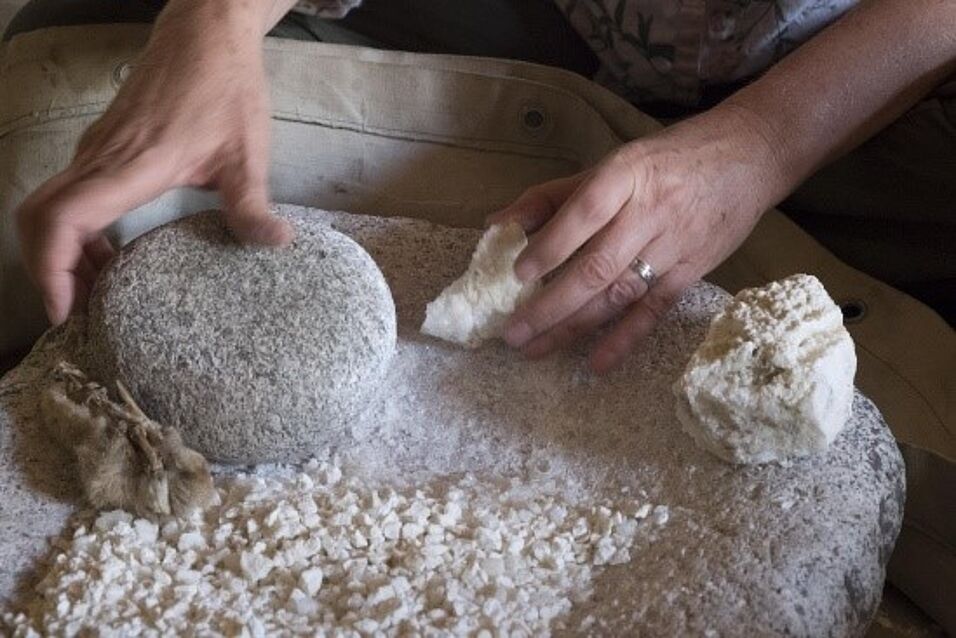Ein Vortrag im Rahmen des Proseminars von Dr. Florian Ploberger: "COVID-19 aus Sicht der Tibetischen Medizin" (LV-Nr. 142125)
Sowa Rigpa texts describe the body’s physiology as a continuous process of refining essences from the five elements (earth, water, fire, air and space) and the six tastes (sweet, sour, salty, bitter, hot, and astringent), ingested, for example, in the form of food. Each taste manifests two of the elements, for example, earth and water generate sweet taste, and water and air bitter taste. How does this play out in the art of making medicines, where substances are combined into multi-compound herbo-mineral drugs, depending on their tastes and powers? How do Tibetan doctors explain the principles of their menjor (sman sbyor), or the art of medicine making? They call the capacity of a substance to have an effect nüpa (nus pa). Nüpa can be of many types and becomes manifest through preprocessing techniques when making medicines. How do they know about the potency of substances and how is this knowledge transmitted? Inspired by the work of the historian of science Pamela Smith and the anthropologist Tim Ingold and through ethnographic examples from India and Nepal, I will highlight specific ways of knowing and doing, exploring the artisanship involved in processing substances into medicines and discussing what this tells us about potency in Sowa Rigpa.
Dr. Barbara Gerke has lived many years in Himalayan areas in India in Tibetan communities, researching Tibetan medicine. She also co-founded and directed the International Trust for Traditional Medicine (ITTM) in Kalimpong, West Bengal, India, where she promoted students, research projects, and provided residential facilities and exchange opportunities for researchers from 1995-2008. She holds an M.Sc. in Medical Anthropology (2003) and a D.Phil. in Social Anthropology (2009) from the University of Oxford. She has taught at UCSB, CA, and at Dartmouth College, NH, USA, and was assistant professor at the Institute for Asian and African Studies, Humboldt University of Berlin, Germany. She came to Austria in 2015 with a Lise Meitner senior research fellowship on “Biographies of Tibetan Precious Pills.” Currently she is the principal investigator of a three-year FWF-funded research project on “Potent Substances in Sowa Rigpa and Buddhist Rituals” (2018-2023) at the University of Vienna.
Her monograph Long Lives and Untimely Deaths (2012, Brill) analyses long-life rituals, as well as vitality and life-span concepts among Tibetans in the Darjeeling Hills. Her second monograph (2021 open access, Heidelberg University Publishing) is on the use of mercury in Sowa Rigpa, titled Taming the Poisonous: Mercury, Toxicity, and Safety in Tibetan Medical Practice.
For publications see: univie.academia.edu/BarbaraGerke

